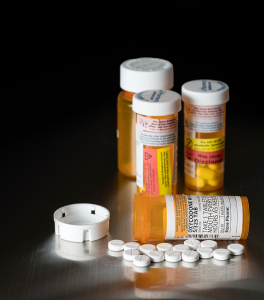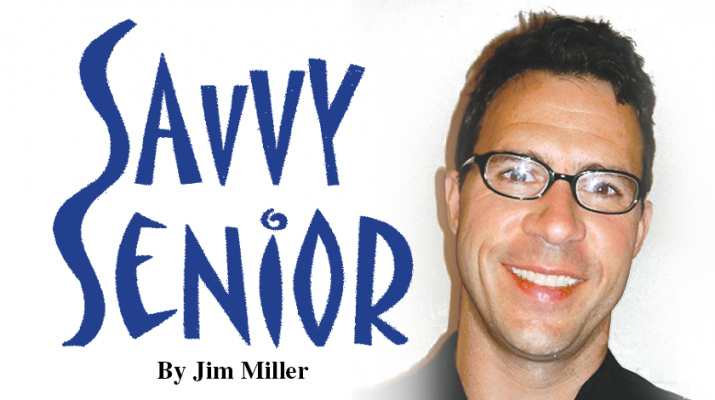By Jim Miller
 Dear Savvy Senior,
Dear Savvy Senior,
I’m worried about my 72-year-old mother who has been taking the opioid medication Vicodin for her hip and back pain for more than a year. I fear she’s becoming addicted to the drug but I don’t know what to do.
Concerned Daughter
Dear Concerned,
The opioid epidemic is a national problem that is hitting people of all ages, including millions of older Americans. Here’s what you should know and do to help your mother.
The Cause
The main reason opioid addiction has become such a problem for people over age 50 is because over the past two decades, opioids have become a commonly prescribed (and often overprescribed) medication by doctors for all different types of pain like arthritis, cancer, neurological diseases and other illnesses that become more common in later life.
Nearly one-third of all Medicare patients — almost 12 million people — were prescribed opioid painkillers by their physicians in 2015. That same year, 2.7 million Americans over age 50 abused painkillers.
Taken as directed, opioids can manage pain effectively when used for a short amount of time. But with long-term use, people need to be screened and monitored because around 5 percent of those treated will develop an addiction disorder and abuse the drugs.
Signs of Addiction
Your mother may be addicted to opioids if she can’t stop herself from taking the drug, and her tolerance continues to go up. She may also be addicted if she keeps using opioids without her doctor’s consent, even if it’s causing her problems with her health, money, family or friends.
If you think your mom’s addicted, ask her to see a doctor for an evaluation. Go to the family or prescribing physician, or find a specialist through the American Society of Addiction Medicine (see ASAM.org) or the American Academy of Addiction Psychiatry (AAAP.org). It’s also important to be positive and encouraging. Addiction is a medical matter, not a character flaw. Repeated use of opioids actually changes the brain.
Treatments
Treatment for opioid addiction is different for each person, but the main goal is to help your mom stop using the drug and avoid using it again in the future.
To help her stop using the drug, her doctor can prescribe certain medicines to help relieve her withdrawal symptoms and control her cravings. These medicines include methadone (often used to treat heroin addiction), buprenorphine and naltrexone.
After detox, behavioral treatments such as individual counseling, group or family counseling, and cognitive therapy can help her learn how to manage depression, avoid the drug, deal with cravings, and heal damaged relationships.
For assistance, call the Substance Abuse and Mental Health Services Administration confidential help line at 800-662-4357, or see SAMHSA.gov. They can connect you with treatment services in your state that can help your mom.
Also, if you find that your mom has a doctor who prescribes opioids in excess or without legitimate reason, you should report him or her to your state medical board, which licenses physicians. For contact information visit FSMB.org.
Send your senior questions to: Savvy Senior, P.O. Box 5443, Norman, OK 73070, or visit www.savvysenior.org. Jim Miller is a contributor to the NBC Today show and author of “The Savvy Senior” book.

